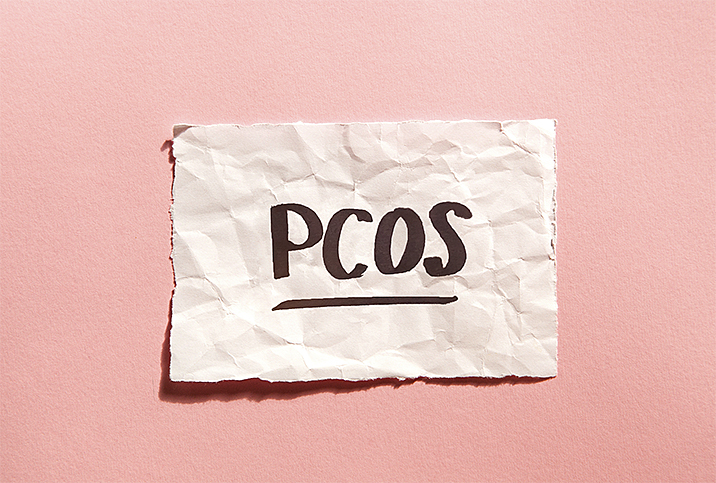Understanding Polycystic Ovary Syndrome

Between 5 and 10 percent of women of childbearing age have polycystic ovary syndrome (PCOS). One of the most common hormonal endocrine disorders among women, PCOS is associated with lengthy or irregular periods, hormonal imbalance and ovarian issues.
The causes of polycystic ovary syndrome remain unknown, but doctors do understand what symptoms to expect and how to combat them.
Common challenges associated with PCOS
Polycystic ovary syndrome is known to cause hormonal imbalances that can lead to a variety of symptoms, including abnormal periods, acne, weight gain, unwanted hair, infertility, diabetes and high blood pressure.
Fertility issues
Up to 80 percent of women with PCOS report fertility problems, which may be because they have a heightened androgen level. Androgens are a group of hormones, including testosterone, that contribute to the side effects of PCOS. All women have a small amount of these male hormones, which are responsible for sex drive and energy. PCOS causes a hormone imbalance where there is more testosterone than usual.
Androgens can prevent the ovaries from releasing eggs by limiting development of the follicles, small structures inside the ovaries that contain an egg. But a successful pregnancy is still a possibility. Doctors may recommend medications such as clomiphene citrate to encourage follicular development; such medications are reported to give women a 15 to 20 percent chance of pregnancy each cycle.
Diabetes
Women with PCOS have an increased risk of type 2 diabetes, with more than half reporting a diagnosis by age 40. Polycystic ovary syndrome also increases the odds of gestational diabetes.
Science tells us there’s a link between polycystic ovary syndrome, weight and diabetes, but it’s unclear whether PCOS causes weight fluctuation or if weight fluctuation causes PCOS. However, it is known that more weight around the midsection increases the odds of insulin resistance. But it’s not just a matter of being overweight: Some women have an increased risk of diabetes due to their family’s medical history.
Women with type 1 diabetes have an increased risk of PCOS—also sometimes diagnosed in children and young teens—though doctors aren’t entirely sure why. One in four women with type 1 diabetes is also diagnosed with polycystic ovary syndrome.
The best advice would be for any woman with type 1 or type 2 diabetes to talk to their doctor about screening for PCOS.
Abnormal hair growth
Due to the increase of androgens in the blood, the body produces more hair. Abnormal hair growth is also called hirsutism, and it results in coarse or dark hair that grows in women on the face, chest, upper legs, back, abdomen or upper arms.
Most women don’t appreciate excessive hair growth and often find ways to remove it, such as regular waxing or laser hair removal. However, in one of life’s many conundrums, some women experience hair loss as a result of PCOS. Medication called spironolactone can prevent new hair growth when used long term. Elevated testosterone levels can also cause hair loss, which can usually be treated with birth control pills to bind up the excess testosterone.
High blood pressure
Polycystic ovary syndrome can cause high blood pressure, which, if not treated, can damage the heart and other organs and lead to premature death. Thanks to its few outward symptoms, high blood pressure, or hypertension, is sometimes referred to as “the silent killer.” Women with PCOS should contact their doctor about hypertension medication and treatment, and make sure their blood pressure is monitored on a regular basis.
Managing PCOS symptoms
While symptoms associated with polycystic ovary syndrome are varied, any and all can be managed with open communication with your physician, and even with yourself.
It’s important that you’re always in tune with your body and its needs, because it surely knows when something is amiss. Some studies suggest that obesity contributes to polycystic ovary syndrome, and that would suggest weight management might be an essential part of PCOS management. Another study suggests that eating a wide variety of fruits and vegetables every day can mitigate symptoms. Simply listen closely to what your body tells you it needs, from diet and exercise to proper sleep and general wellness.
Most important, be sure to communicate with a medical professional who will be able to suggest appropriate medications and advise you how to best manage your symptoms.
To combat the main side effects of polycystic ovary syndrome, doctors will likely prescribe only a few medicines. PCOS treatment is generally not demanding or complicated. Women with PCOS are fully capable of enjoying a normal, healthy life.


















